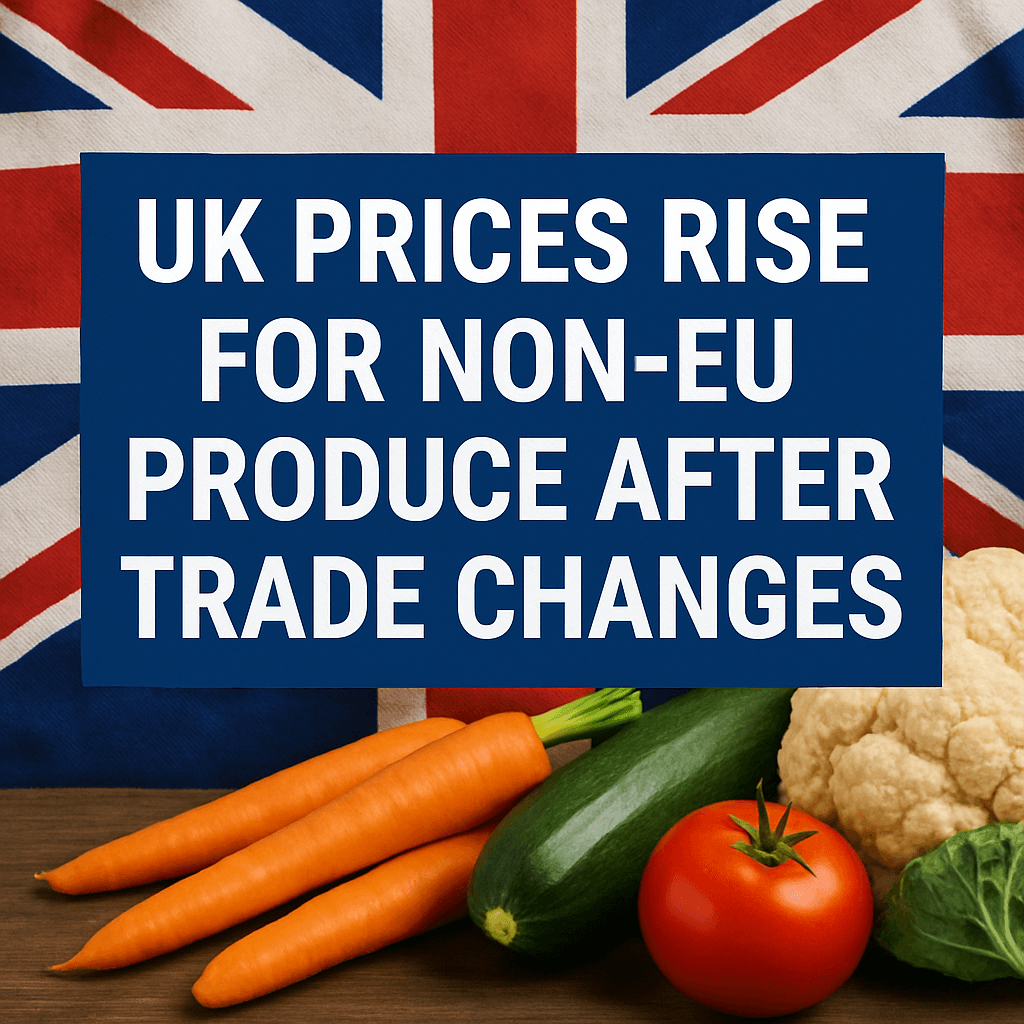UK Prices Rise for Non-EU Produce After Trade Changes

The United Kingdom and the European Union reached a fresh cooperation agreement on December 11, 2023, renewing ties across agriculture, travel, defence and fisheries. Central to the deal is an enhanced sanitary and phytosanitary (SPS) framework that aims to streamline trade in animal and plant products. While this reset promises to cut red tape for British exporters to the EU, it also raises the prospect of higher consumer costs for non-EU imports as the UK realigns its standards.
Background on the EU-UK SPS Reset Agreement
The SPS chapter forms part of a broader agenda to mend post-Brexit fracturing. It introduces mechanisms for digital exchange of certificates, a common protocol for risk-based inspections, and a standing committee for SPS oversight. Underpinning the pact is the requirement for the UK to dynamically align with EU regulations in areas such as pesticide MRLs (maximum residue levels), animal welfare directives and plant health measures, with oversight by the European Court of Justice (ECJ) limited to SPS disputes.
Technical Specifications of the SPS Framework
- Electronic Phytosanitary Certificates (ePhyto): Implementation of the EU’s eSPS platform by Q3 2024 to enable real-time digital issuance of phyto and veterinary health certificates across Harmonized System (HS) codes 01–24.
- Risk-Based Inspection Protocol: Use of EU’s TRACES system to allocate border inspection posts (BIPs) according to commodity risk scores, reducing random checks from the current 20% to an ex-ante 5% for approved UK establishments.
- Mutual Recognition of Cold-Chain Controls: Alignment of HACCP (Hazard Analysis and Critical Control Points) standards and traceability requirements under Article 17 of the EU Animal Health Law, facilitating frictionless transit for chilled meat products, raw sausages and unprocessed dairy.
- Shortlist of Exceptions: Limited carve-outs on topics like chlorine-washed poultry and hormone-treated beef, to be reviewed annually by the SPS oversight committee.
Impact on UK-EU Trade Flows and the Wider Economy
Before the reset, British exports of food and drink to the EU plunged by 34% between 2019 and 2024, according to the Food & Drink Federation. The Office for Budget Responsibility (OBR) projects a 15% reduction in UK trade in the long term without new trade accords. An Aston University modelling paper suggests a full SPS deal could lift UK agri-food exports to the bloc by 22.5% and imports by 5.6%, raising total trade in goods and services by 0.3% of GDP.
“For exporters, the reduction in bureaucracy marks a significant operational gain, albeit with modest macroeconomic impact,” says Charles Grant, director of the Centre for European Reform.
SME Benefits and Administrative Relief
Small and medium-sized enterprises (SMEs) stand to gain most from lower per-shipment costs. By eliminating the need for third-party VAT representatives in EU markets and reducing customs declaration charges (currently averaging £48 per entry), the deal can save SMEs up to £5,000 annually. However, firms await detailed guidance on how the UK’s Copernicus customs platform will integrate with the EU’s Import Control System 2 (ICS2).
Additional Analysis: Consumer Price Implications
While UK-EU flows may become smoother, imports from non-EU regions—such as Mediterranean fruits or New Zealand apples—could face relatively higher costs. Econometric studies indicate that non-aligned tariffs and SPS divergence boost landed costs by 4–6%. With fresh produce accounting for 20% of a UK household’s food basket, even a 3% price rise could add 0.1 percentage point to headline food inflation, according to the Office for National Statistics (ONS).
Additional Analysis: Scenarios for Regulatory Divergence
Should the UK deviate from EU SPS rules, the mutual recognition mechanism could collapse. Experts estimate that reintroduction of full checks would slow border processing times by 30%, reimposing delays of up to 72 hours on lorries at Dover and Folkestone. Metrics tracked by the British Frozen Food Federation show a 15% revenue drop in perishable exports when transit exceeds 48 hours.
Additional Analysis: Defence and Geopolitical Tie-Ins
Parallel to agricultural talks, the UK-EU signed a Defence and Security Partnership granting the UK observer status in the European Defence Fund (EDF). While full access to the €150 billion fund depends on final legal text, it paves the way for joint R&D on cyber-resilient systems, unmanned aerial platforms and shared procurement standards under NATO interoperability codes (STANAGs).
“In an era of strategic uncertainty, institutional alignment on defence procurement signals deeper geopolitical cohesion,” notes Guntram Wolff, senior fellow at Bruegel.
Outlook and Next Steps
Implementation will hinge on secondary legislation in Westminster and amendments to EU SPS regulations. Technical Working Groups (TWGs) are scheduled to meet quarterly, with the first review set for June 2024. Meanwhile, industry bodies like the National Farmers Union will scrutinise draft texts, particularly around dynamic alignment clauses.
As the UK balances sovereignty with market access, the SPS reset illustrates the trade-off between regulatory flexibility and tariff-free trade. Stakeholders will be watching closely whether this model of selective alignment could extend to sectors like chemicals, pharmaceuticals and energy.
Source: euronews